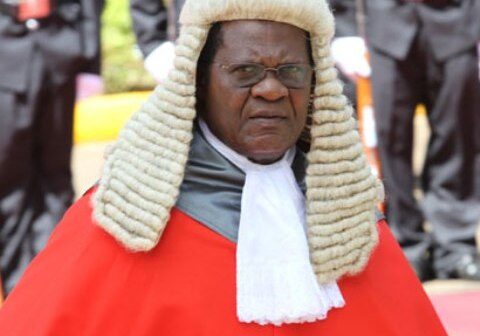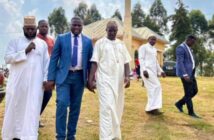Retired Chief Justice Benjamin Odoki has shared his agony of handling two presidential election petitions and the key issues that should be taken into account should such petitions come up in the future. He shared his experience at a four day’s symposium in Kampala with Supreme Court Justices and a group of city lawyers who have featured prominently in the past presidential election petitions.
The group is discussing their experiences, the law and evaluation of evidence in a presidential election petition and preparation among others. In his address, Odoki, who served as Chief Justice for 13 consecutive years, noted that the principle of Substantial Effect on the presidential election results has been the most controversial and decisive in determining the petitions and require keen attention for the warring parties in the suit.
The principal of substantial effect means that the fact that there was cheating in an election, is not enough to set aside an election. It requires the petitioners to go an extra mile to prove to the court that they indeed lost the elections because of the vote theft considering the magnitude of the votes between the winner and the applicant.
According to Justice Odoki, while applying the principle of Substantial Effect, the court has to evaluate the whole process of the election to determine how the vote theft affected the final results and assess the degree of the effect. He notes that although there has been serious arguments and disagreements on whether the number of votes is important, it is also important for a petitioner to prove that there was noncompliance with the presidential elections Act if the presidential election results are to be nullified.
Odoki also narrated how it was difficult for him to constitute Quorum for the 2001 Presidential Election Petition filed by Dr Kizza Besigye against the president, Yoweri Kaguta Museveni. The law requires that the Supreme Court constitutes a bench with an odd number of justices with at least five judges and that the majority decision carries the day. Odoki explains that in 2001, there were only six justices of the Supreme Court. According to Odoki, he constituted a bench of five justices leaving out one Judge, who was the most junior.
Odoki says that in 2006 when he constituted a panel of seven Supreme Court justices. The justices dismissed the petition by the majority of four to three Judges. However, in both petitions, each Judge wrote a separate judgment, most of which were lengthy. In 2016, the retired Chief Justice Bart Katureebe constituted a Quorum of nine justices, who dismissed the presidential election petition in a unanimous decision but only one judgment was written.
He also said that due to the limited time allocated for the presidential election petitions, they would announce their decision and set a date to explain their reasons. Justice Odoki however, said they would this challenging as some judges argued that it was illegal. “What options did we have at our disposal? I note that in the 2016 petition, the same approach was adopted. I understand that Kenya, has adopted the same approach” said Odoki.
Adding that “the solution is to amend the law and give the court more time to consider and determine the petitions without hurry.” On the issue of evidence, Odoki explained that the three presidential election petitions were almost exclusively determined on the basis of the affidavits presented. He, however, says that through the few witnesses who testified in the petitions, the justices found that the affidavits were not entirely reliable as they were often done in a hurry and sometimes in violation of the law as some affidavits are drafted by lawyers and merely signed by the deponents without swearing or even reading them.
URN



